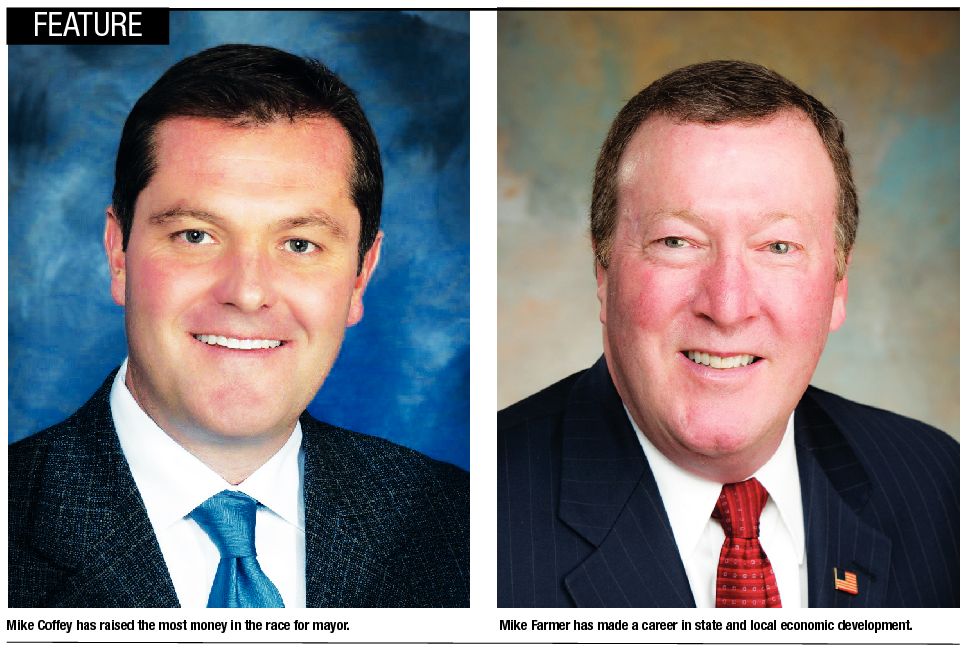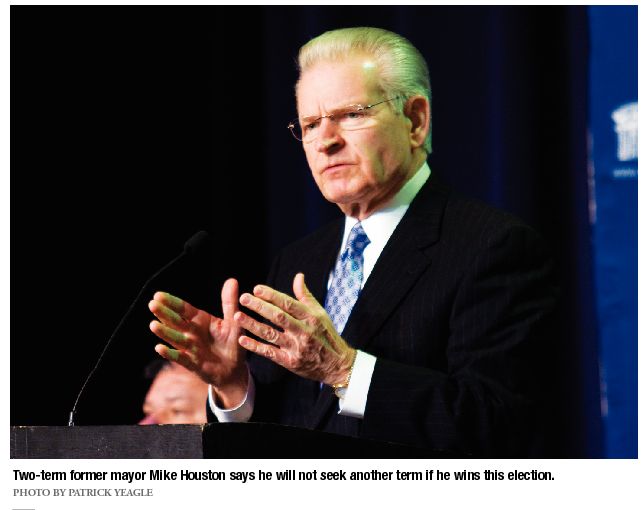
Will the next mayor please step forward?
continued from page 13
Still, ideas seem to be lacking in this election. The candidates seem to agree on almost everything: the city needs to court new businesses, rebuild infrastructure and be more transparent. They all agree that the consolidation of Springfield’s railroads should happen on 10th Street instead of Third Street. Better promotion of tourism, especially based on Abraham Lincoln, seems to be a cornerstone of every candidate’s campaign. In general, each of them has promised “a new way of doing things” at city hall.
The closest any candidates have come to visionary ideas are Stocks-Smith’s promise at a Feb. 4 Citizens Club forum to heal the racial, geographic and economic divides that plague Springfield, while McCarty has proposed a video game night to create positive relationships between Springfield Police and local young people. McCarty also wants the city to continue buying up abandoned properties on the east side, demolishing the vacant buildings and turning the property over to community groups for green space, gardens or new homes.
Those ideas are a start, but more and bigger ideas are needed to both distinguish the candidates and transform the city. The term “building on our strengths” has been used often in this campaign, but what about fixing our weaknesses? The downtown area, for example, suffered greatly when Rod Blagojevich as governor moved thousands of state jobs to Chicago, and the situation is getting worse under Gov. Pat Quinn. Dozens of empty storefronts and office spaces scar the face of downtown, even while a TIF district offers tax incentives for development. A mayoral candidate with a plan to revitalize the downtown with more apartments, restaurants, art galleries and shops might get some attention, but none has stepped forward so far. Coffey told Illinois Times that more funding for the convention center would drive tourism and in turn prompt more businesses to open downtown, but there is only so much tourism can do.
“It will enhance the downtown, it will bring more people there, more tax revenue to the people of Springfield, and when you do that, people will then buy up those buildings,” Coffey says. “They’ll put new businesses in. What government has to do is help attract people to Springfield and then let the private sector do the rest.”

Plans to increase tourism are certainly useful, but it must be convenient for tourists to navigate the city if we
expect them to stay. Beefing up public transportation in  Springfield,
especially to the Abraham Lincoln Capital Airport, would make tourism
here more attractive, ease traffic congestion and help mitigate the
geographic and economic barriers that divide the city.
Springfield,
especially to the Abraham Lincoln Capital Airport, would make tourism
here more attractive, ease traffic congestion and help mitigate the
geographic and economic barriers that divide the city.
For
another example, candidates touting openness and transparency in the
mayoral race could take those ideas a step further and make all of city
government open to pubic view. Providing citizens with instant online
access to more records and databases would foster public trust in
government while helping expose the kind of inefficiencies and
redundancies so often railed against. These are the types of ideas that
could truly set a candidate apart while moving toward a real
transformation of the city.
While
this campaign may not be exciting based on the candidates, the election
itself may offer some interesting dynamics as the city tests a new
nomination process. This election will be the first under a 2007 state
law that allows four candidates in municipal primary elections to
advance to the general election, instead of the usual two. The law,
which took effect after Springfield’s 2007 mayoral election, was
intended to eliminate the primary election if fewer than five
candidates, including write-ins, ran for a single office. However,
municipalities across the state are interpreting the law’s unclear
language to mean that four candidates for a given office can advance
beyond the primary. The four candidates who get the most votes in the
primary will advance to the general election, regardless of party
affiliation.
Based
on the candidates’ endorsements, name recognition and campaign cash, it
seems likely that Mike Coffey, Mike Farmer, Mike Houston and Sheila
Stocks-Smith will advance to the general election. It's difficult to
tell for sure, however, because Frank Kunz, Mario Ingoglia and William
McCarty are each running heavy grassroots campaigns with lower
visibility. Even though candidates in municipal elections don’t
officially run on a partisan platform, the new system may also lead to a
splitting of the vote in the general election. If three Republicans and
one Democrat are nominated in the primary, for example,
the Republicans may split their party’s vote three ways in the general
election, while the lone Democrat could enjoy the support of that
party’s entire voting bloc.
Kent
Redfield at UIS notes that a candidate won’t necessarily have to get a
majority of the vote to win the general election, which means candidates
can tailor their message to more specific audiences. A candidate could
win the general election with just 26 percent of the vote, for example,
provided the rest of the vote was divided equally among the other three
candidates.
“You’re
playing to your base, but normally when you get to the general
election, you have to broaden your appeal,” Redfield says. “Now, you
don’t need to get 50 percent, and you really don’t need to broaden your
base as much. … Certainly the strategic considerations have changed. You
can appeal to a narrower base and still become mayor.”
That
may actually help explain why big ideas have been so scarce in this
election so far. The candidates may simply be playing it safe to avoid
controversy because strategies to win in this new election environment
are untested, Redfield says. Proposing a big idea can be a risk because
opponents may see it as a chance to attack, but as soon as the primary
election shows one candidate to be in the lead, he or she will become a
target for the other three candidates anyway.
“Everybody
will gang up on the front-runner,” says Dr. Ron Michaelson, former head
of the Illinois State Board of Elections. “You’d better believe the
other three candidates would concentrate on the number one person. It’s
not unusual. We see that at all levels.”
No
matter what happens, the outcome of this election will determine
Springfield’s path even beyond the end of the next mayor’s term. As
Abraham Lincoln said to Congress in 1862, “The occasion is piled high
with difficulty, and we must rise with the occasion.
As our case is new, so we must think anew, and act anew.”
Contact Patrick Yeagle at [email protected].
For information on voting, call the Election Office of the Sangamon County Clerk at 753- 6740 or visit www.sangamoncountyclerk.com.